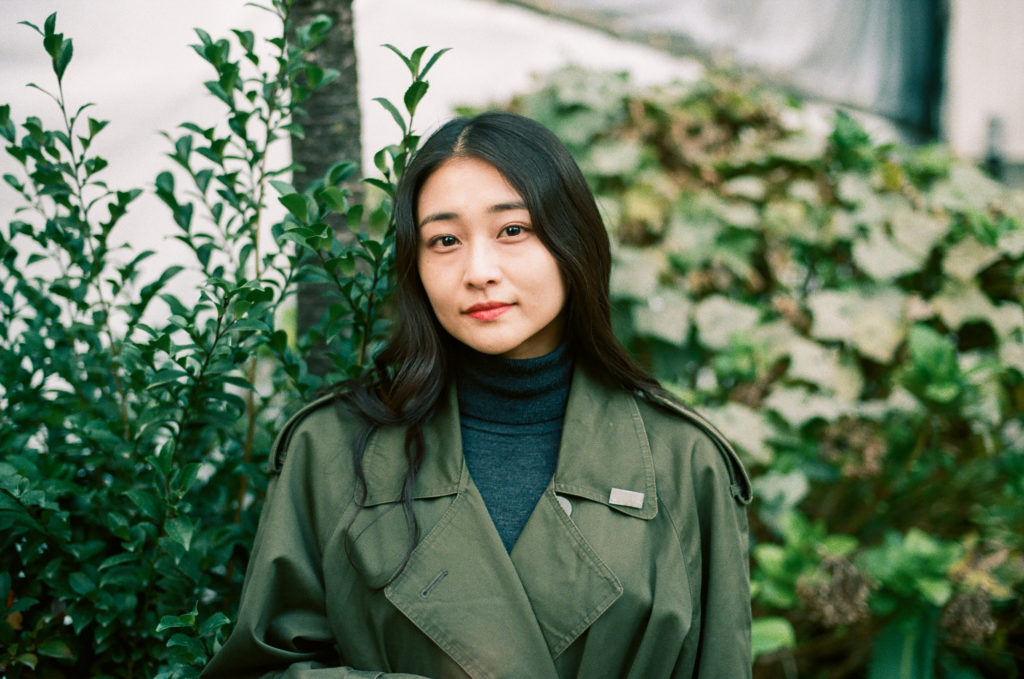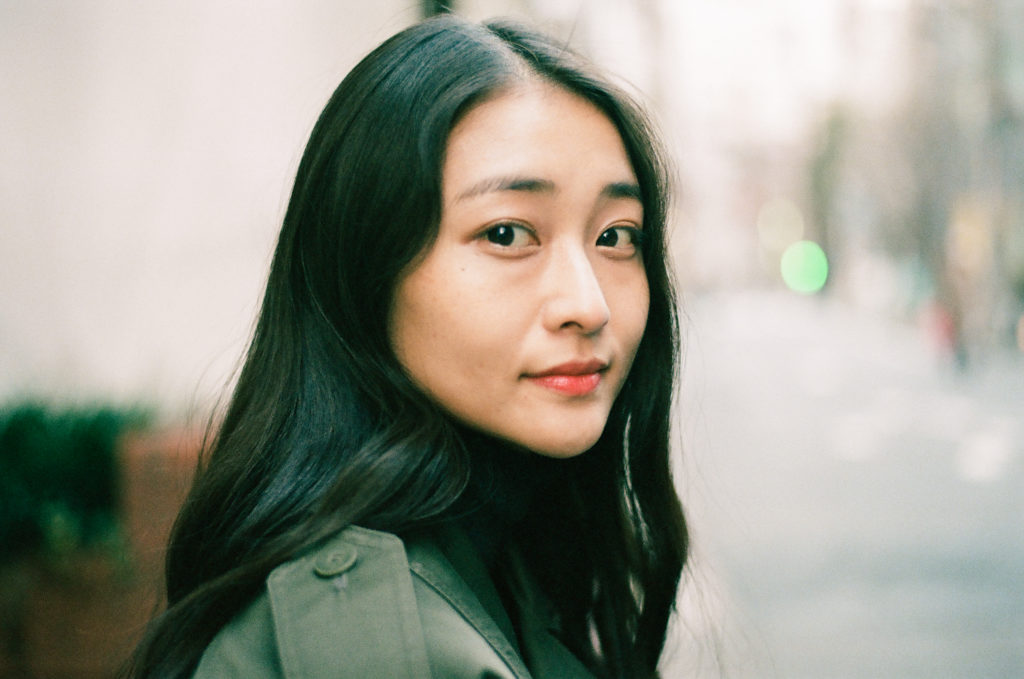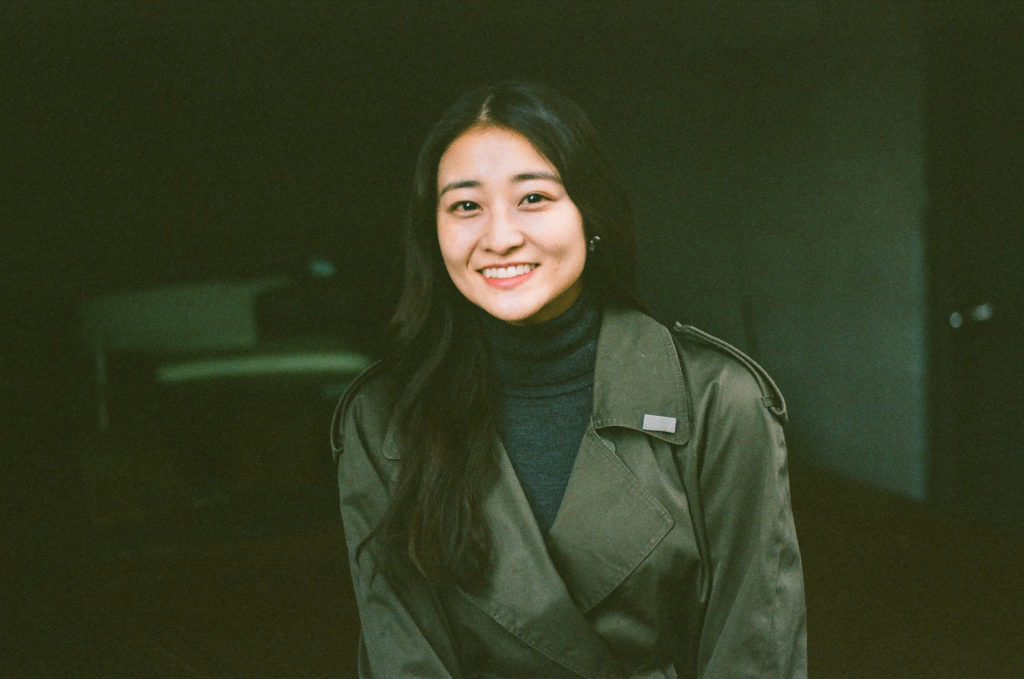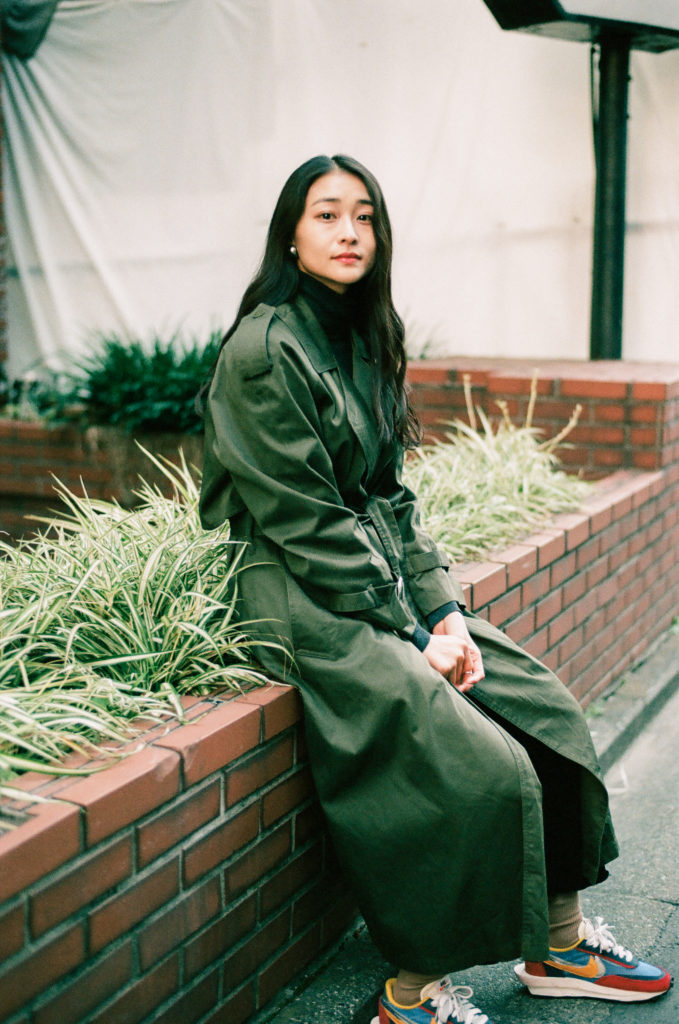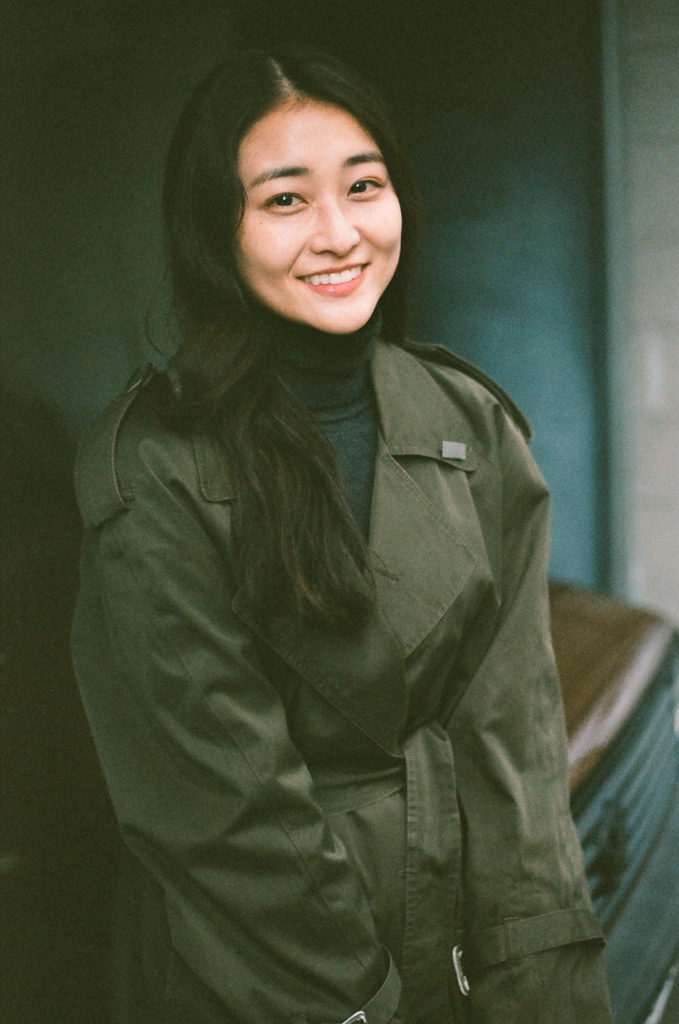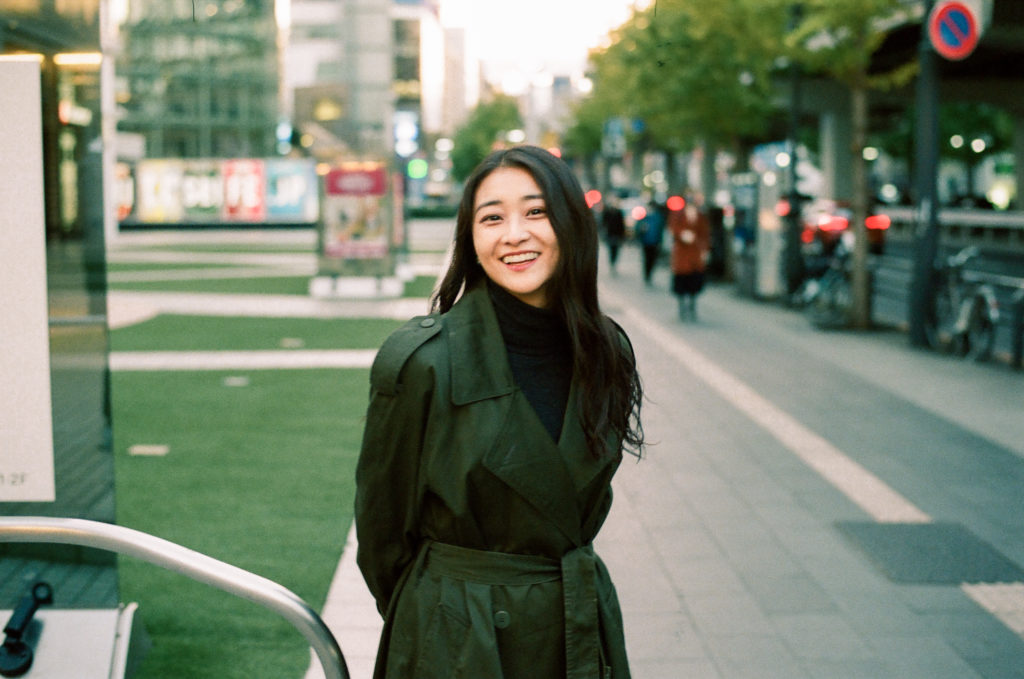“Whether I’m a woman or not, whether I’m an idol or not, I get to decide my future. I wish I didn’t need to say that to make it come true, but if I didn’t, I think it’d be difficult to seize my future.”
These words are from a statement published on idol Ayaka Wada’s website. In June of 2019, Wada graduated from Hello! Project’s idol group, ANGERME. But even now, as she remains active with live shows and writing, her title remains “idol.” At the same time, she’s attracted a great deal of attention for proactively speaking about feminism and gender, topics that are considered to be unwritten taboos for idols. What kind of future does Wada hope to seize by continuing to be an idol?
“You shouldn’t wear dark lipstick because you’re an idol.”
――You joined Hello! Project at just ten years old. Why did you decide to become an idol?
Ayaka Wada (Wada): I joined Hello! Project because my parents encouraged me to audition and I passed. But because I was in fourth grade at the time, it felt like a class or extracurricular activity. I debuted in 2009 at age 15 as a member of S/mileage [now known as ANGERME], and that’s when I started thinking of idol activities as work.
――When did you start becoming aware of feminism?
Wada: When I entered my late teens and started blossoming into a young adult, I think I started increasingly feeling a bit confused about things. Like at one point, I wanted to look more mature, so I started growing out my bangs. Until then, my style was sort of “cute” with straight-across bangs, so there were some negative comments about me suddenly looking more mature. Also, people around me have told me, “You shouldn’t wear dark lipstick because you’re an idol.” I think they were saying it with good intentions, but I thought that was what I should do to express my music, so I wasn’t convinced by that explanation alone.
――Some idols refrain from expressing their opinions or ideas so they don’t go against the expectations of their fans or those around them. How did you deal with that?
Wada: Two years before I graduated from the group, when I was around 23, I became really conscious of feminism and started talking about gender even in front of people. Of course, there was some criticism, but more than that, there were people who learned about issues from my comments or sympathized with what I was saying, so the happiness from that was greater.
The similarity between women depicted in paintings and modern idols
――How did you become aware of the concept of feminism?
Wada: I encountered feminism from my art studies when I was learning about the way women are drawn, and I became very aware of it from there. Since learning about feminism, I’ve realized, “Oh, it’s fine to have thought something felt off” about the discomfort I’d been feeling until then.
――I heard that you were originally inspired to study art after seeing an Édouard Manet [19th-century French painter] painting at an art museum in high school. Why did you decide to study art?
Wada: When I like something, I’m the kind of person who becomes completely absorbed in it and wants to explore it in depth. I was interested in the works of art and the painters themselves, and I’d often go to art museums and read books on paintings that I’d bought. And then my manager at the time told me that there was a discipline called art history, so I naturally started thinking about going to university.
――What kind of themes were you exploring in depth at university?
Wada: I studied Édouard Manet, and for my graduation thesis, I researched Manet and preceding generations leading up to him. Manet is a modernist painter, but in order to find out how Manet’s era of art came about, I was doing comparative research into earlier generations and working to understand the points of connection between the innovative and traditional aspects of Manet’s works and paintings. So as part of that, I chose one work and researched that, and that was a portrait of a woman named Berthe Morisot. Berthe Morisot was a painter too, and her works are also often studied from a feminist perspective, which led me to read books on art and feminism.
――How are Manet’s portraits different from other works?
Wada: In art, women are often portrayed as passive. Many works reflect the gaze of the artist looking at the subject, and many depictions emphasize the curves of the body. Also, it’s common to depict the woman in a way where the person looking at the work is a one-sided “viewer” peeking into the scene. On the other hand, the composition of the portrait of Berthe Morisot by Manet features the woman being painted staring back at the painter, so it’s not as smooth to look at. It’s not just the woman’s gaze—she’s also facing the front, so it gives a strong impression that she’s “facing” the viewer. I learned that’s how compositions of “viewer” vs. “viewed” are created.
――Idols are also on the side of the “viewed.” Do you feel uncomfortable with that?
Wada: I’ve been working as an idol for a long time, so I’m used to being watched by people, but sometimes I feel uncomfortable with the way I’m seen or perceived. I’ve always had questions about the fluidity of sexuality and gender norms, so I questioned various things related to the heterosexual nature of the idol profession. Even in song lyrics, most of the time the depictions of feelings are based on heterosexual love, and the protagonists of songs follow traditional gender norms. I felt uncomfortable wondering why gender had to be so limited and conventional gender roles were so often applied. And I was performing that on stage, so I often felt that I was seen and perceived that way.
“Things haven’t fundamentally changed.” What changes are necessary in the idol industry going forward?
――Since graduating from Hello! Project, you’ve taken on more art-related work, but you still work under the title of “idol.” Why is that?
Wada: I want today’s idols to have more options. Until recently, from my late teens to when I was 20, I couldn’t understand why there were restrictions like, “You can’t do that because you’re an idol,” and frequently felt frustrated. I don’t want members of the next generation to feel the same way. My exposure to various cultures, mainly through art, has made me realize that oppression comes from a devotion to a male-centric perspective. That’s why I’d be happy if I could add another image of an idol by voicing my realizations and opinions.
――Recently, there’ve been more types of idols popping up compared to before, but are there still many things that haven’t changed?
Wada: It’s true that there are all types of people and groups popping up in the idol industry compared to before, and the image of an idol has expanded. But things haven’t fundamentally changed, and you need to be really brave to speak about social issues. I think that’s exactly why speaking out is one action I can take as someone who has become more aware.
――Was talking about gender something you needed to be brave to do too?
Wada: When I started talking about gender, there were people who told me it was wrong for an idol to bring up gender issues. There shouldn’t be anything wrong with talking about gender, but I think idols need courage to speak up against the tide of the industry.
――What changes do you think are necessary to turn the tide?
Wada: It’d be nice to be able to choose what you wear, what you look like, what you say, and all kinds of things. But there are many underage idols, so I think it’d also be irresponsible to leave everything up to them. For example, for gravure idols, if there’s a choice of whether to wear a swimsuit or not, there needs to be an age limit established, and the person can decide once they’re old enough to. I think it’s important for agencies to take care of girls above all else. It’d be great if producers could come from the perspective of, “What do I value about this girl?”
――How do you think fans see you now that you’re voicing your opinions?
Wada: Recently, I’ve been talking not only about gender, but about menstruation. Idols don’t really talk about that kind of thing, but menstruation is normal, and there’s nothing wrong with it. If you take into account the fact that even outside of the idol industry, in general, various information related to menstruation usually hasn’t been out in the open——I think it’s important to change people’s thinking about the issue and create an environment where anyone can access important information. Some of my fans are also people who have periods, and it made me happy to hear them say, “I’m glad to know that Ayacho [Wada] is a person just like me, living in the same way.”
――You’re a new role model for idols.
Wada: I think younger idols haven’t had many opportunities to become aware of diversity or gender up until now, so maybe they feel that way. But I don’t want to inadvertently influence those girls with my opinions. Still, I think that if I’m ever troubled by something, or think something is wrong, I want to make an effort for those girls.
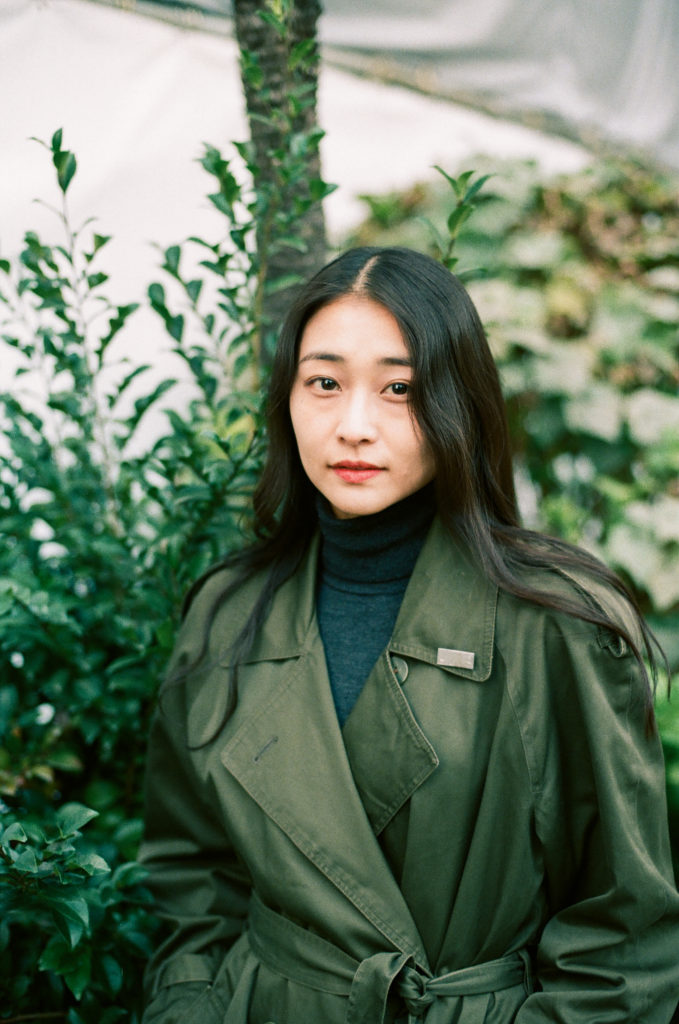
Ayaka Wada
Ayaka Wada is an idol born on August 1st, 1994 in Gunma Prefecture. In April 2009, she was selected as one of the first members of the idol group S/mileage [later renamed ANGERME], which she later became the leader of. In May 2010, she made her major label debut with “Yume Miru 15” [Dreaming 15-year-old] and in the same year, she won the Best New Artist Award at the 52nd Japan Record Awards. On June 18th, 2019, she graduated from ANGERME and Hello! Project. While continuing her idol activities, she’s also kept a strong interest in art, which she studied in graduate school. Her specialty is talking about art. She especially likes the artist Édouard Manet and the work, “Berthe Morisot with a Bouquet of Violets.” She’s particularly fond of (and knowledgeable in) the fields of modern Western painting, contemporary art, and Buddhist statues. Her hobby is getting in touch with art.
http://wadaayaka.com
https://www.instagram.com/ayaka.wada.official/https://www.instagram.com/ayaka.wada.official/
https://twitter.com/ayakawada
Photography Kosuke Matsuki

